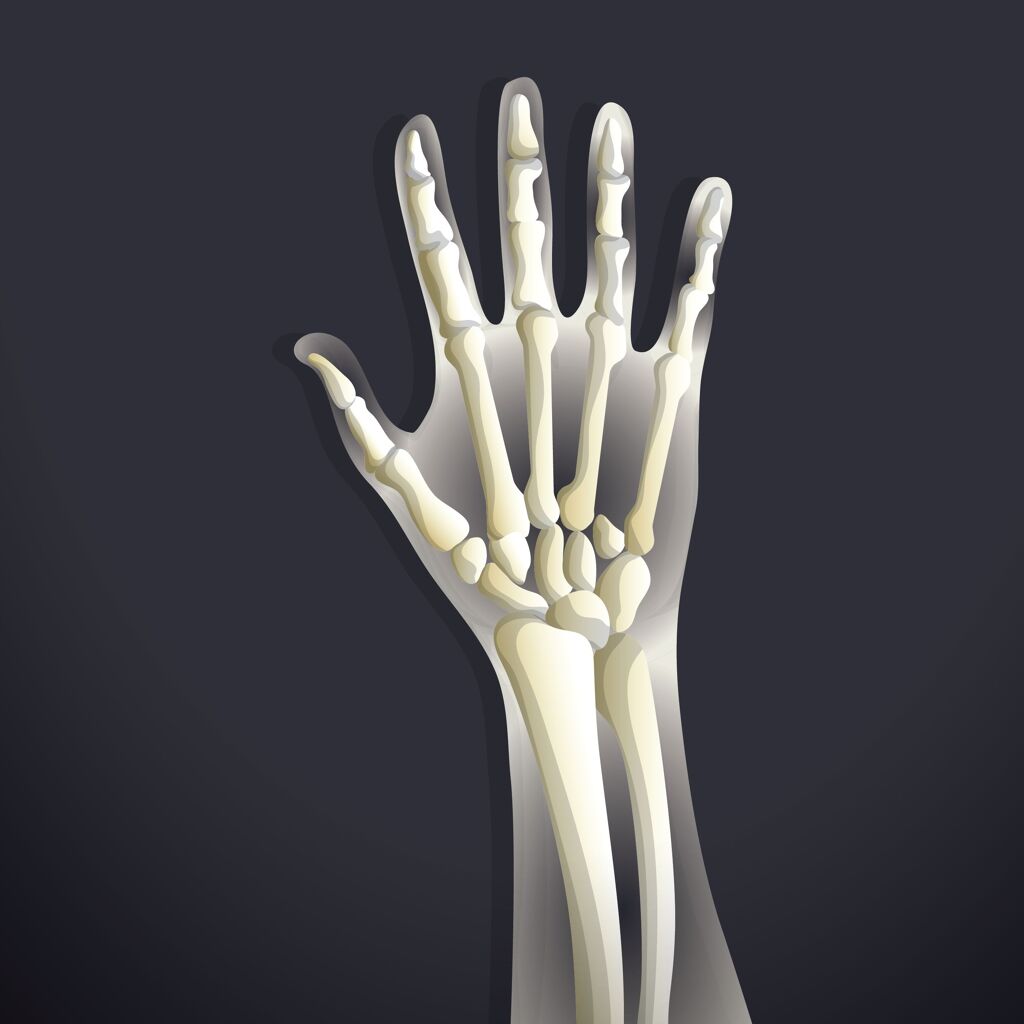Depression: Root Causes and Functional Medicine Solutions

Depression can affect all of us. It can be mild or a debilitating disease that disrupts a person’s life. Do you suffer from depression? Are you aware of some little-known causes that could help you to resolve your depression?
In this blog on depression, you will learn:
- What is depression and its symptoms
- What are the root causes for depression that are often missed
- How Functional Medicine can help address depression
- What solutions are available to reduce or eliminate depression
WHAT IS DEPRESSION?
Depression is a constant feeling of sadness and hopelessness. Depressed people often lose interest in the normal activities of daily life. Symptoms can range from relatively minor to severe.
Depression is a disorder of the brain and can be a serious mental illness. In some cases, depression can persist for months or years and interfere with everyday life.
- The incidence of depression worldwide increased by 50% from 1990 to 2017 (Liu Q, 2020).
- During 2020, the prevalence of depression among US adults was 18.5% (CDC, 2023).
- Depression was highest among people aged 18–24 years old (21.5%) and lowest among those aged ≥65 years old (14.2%) (CDC, 2023).
- The rate of depression was higher among women (24.0%) compared with men (13.3%) (CDC, 2023).
WHAT ARE THE SYMPTOMS OF DEPRESSION?
Not all depression is the same. It is a complicated disorder and there are different subtypes. Common symptoms of depression:
- A continuous low mood or sadness accompanied by feeling hopeless and helpless
- Having low self-esteem while feeling nervous, anxious and worried
- Feeling tearful, irritable and intolerant of others
- Having no motivation or interest in things including difficulty making decisions
- Not getting any enjoyment out of life, having thoughts of suicide, planning suicide or engaging in self-harm
Physically, a person may:
- Move and speak more slowly than usual accompanied by a lack of energy
- Have a change in appetite or weight (usually decreased, but sometimes increased)
- Have constipation or unexplained aches and pains
- Have a low sex drive
- Have disturbed sleep with either difficulty falling asleep or waking up very early in the morning
Socially, a depressed person may avoid contact with friends or family and avoid joining social activities. They may neglect work, relationships, hobbies or interests. Being depressed can lead to having difficulties in home, work or family life.
Depression can be a silent disease. Almost 60% of people with depression do not seek medical help (Chand SP, 2023). There is a stigma that depression, or any mental health disorder, is not socially acceptable.
WHAT CAUSES DEPRESSION?
For years, it was thought that depression was due to low serotonin levels. But the serotonin theory of depression has been disproven. Recent research says there is ‘no consistent evidence of an association between serotonin and depression’ and there is ‘no support for the hypothesis that depression is caused by lowered serotonin activity or concentrations’ (Moncrieff et al, 2022).
Worse still, long-term use of SSRI medication (Selective Serotonin Reuptake Inhibitors), or ‘antidepressants’, may actually lower serotonin concentration.
Despite this evidence, many medical and mental health professionals are not up to date and continue to practice as if depression is primarily connected with neurochemical imbalances.
Furthermore, antidepressants are not terribly effective:
- 31% of people do not respond to current antidepressant treatment or respond poorly (Zhdanava M, 2021).
- 40% of people do reach symptom remission within 12 months, but it is not uncommon for depression to come back (Chand SP, 2023).
So, if not serotonin depletion, what does cause depression?
Clearly, external social and environmental factors can trigger depression. Having experienced trauma, abuse, deprivation, extreme stress, a major accident, loneliness, divorce, death of a loved one, financial difficulties and many other difficult life events can all contribute to depression.
But there are often physiological root causes for depression. In Functional Medicine, we seek to identify and treat these root causes to help our patients recover from depression. This makes the body more resilient in handling the stresses and challenges of modern daily life.
Neuroinflammation
Emerging research shows that neuroinflammation is a key issue in depression. Neuroinflammation is inflammation in the brain. When the brain is inflamed, depression or other neurological or neuropsychiatric conditions can present.
Inflammation in the brain negatively affects brain health. Mood disorders such as depression, anxiety, autism, dementia /Alzheimer’s and schizophrenia have all been linked to inflammation in the brain.
There is significant research on the ‘cytokine theory of depression’. This says that inflammatory proteins called cytokines in the bloodstream cross the blood-brain barrier (BBB) and cause neuroinflammation. This neuroinflammation activates microglia cells in the brain and can cause depressive symptoms.
Microglia cells are immune cells of the brain that regulate brain development. They play important roles in brain health and inflammation. Microglia protect against diseases such as meningitis and Alzheimer’s. But they can also be harmful. The chronic activation of microglia may cause neuronal damage. This is because they release proinflammatory cytokines and others molecules that contribute to neuroinflammation.
Of course, the next question is, what is the cause of the inflammatory cytokines and resulting neuroinflammation?
Infection as a trigger for neuroinflammation
Infections and toxins impact mental health via the mechanism of neuroinflammation. An infection or toxin can affect the brain. The infection or toxin can get into the brain, often through a leaky blood brain barrier. Once in the brain, they can initiate neuroinflammation and a brain autoimmunity process that leads to mental health dysfunction.
What is the link between infections, antibodies against brain tissue and inflammation?
In simple terms, when the immune system is combating some infection, the protein structure of the infectious organism may look a lot like some brain tissue. The immune system is trying to fight the infection and inadvertently starts to attack brain structures in the process.
If the infection becomes chronic or the autoimmune process continues, changes to brain chemistry and neuroinflammation that result from the brain autoimmunity can cause the onset of mental health disorders.
The 5 main infections causing mental illness are:
Strep throat
A strep throat infection can be the trigger for neuropsychiatric symptoms in childhood such as anxiety, obsessive-compulsive disorder and tic disorders. As a result of the infection, antibodies against brain tissue are created, which cause structural damage to the brain, neuroinflammation and symptoms.
Lyme disease
Lyme is a bacterial infection, caused by the bacterium Borrelia burgdorferi. Borrelia is most commonly spread via tick bites. Lyme disease is a complex inflammatory disease with both acute and potentially chronic symptoms.
When left untreated, undiagnosed or misdiagnosed, Lyme disease can possibly develop into more serious symptoms. It can cause inflammation in the brain and mood symptoms. Neuropsychiatric problems such as anxiety, depression, panic and OCD can develop.
Lyme co-infections
A Lyme disease co-infection occurs when someone is infected with other diseases transmitted by the same tick. A tick can carry disease-causing microbes or co-infections in addition to Borrelia. Once bitten, it is possible to contract Lyme and one or more co-infections simultaneously. Possible Lyme co-infections include Bartonella, Anaplasmosis, Babesiosis, Powassan virus, Borrelia miyamotoi (relapsing fever-like illness) and Ehrlichia muris (which causes ehrlichiosis) (Eisen, 2018).
Mold illness
Mold is a significant and under-examined issue that contributes to chronic inflammation and illness. Mold toxins, or mycotoxins, are biotoxins that can cause illness. Exposure to molds, mycotoxins and water-damaged buildings can cause neuropsychiatric symptoms and inflammation. Some symptoms of mold illness include pain, fatigue, increased anxiety, depression and cognitive issues when exposed to a moldy environment (Harding CF, 2020).
Viral infections
Viral infection can be a significant cause of illness, inflammation, immune problems and mental health issues. Different types of viruses, including Epstein-Barr Virus (EBV), herpes, Covid, the flu, HPV and chickenpox / shingles have been associated with mental illnesses (Canli, 2014).
Viral infections are never fully eliminated from the body like most bacterial infections are. Viral infections remain dormant in the body. A virus can be re-activated at any time. It can become a low-level chronic infection, even after the acute symptoms resolve.
Stress is one of the main triggers for reactivation. When the immune system becomes overwhelmed by something else, a virus can re-activate. Being under constant stress can make the immune system too weak to fight the virus off. It can then develop into a chronic underlying viral infection. Encephalitis, or inflammation of the brain, is commonly caused by a viral infection like herpes simplex virus (Ellul M, 2018).
Bacterial or parasitic infections and exposure to toxins (mold toxins or toxic heavy metals) can trigger the reactivation of latent viral infections. Other viruses such as COVID-19 may be able to reactivate dormant viruses like Epstein-Barr Virus. Chronic viral infections can cause neuroinflammation or brain antibodies that can lead to depression, anxiety and mental health issues.
One study found that any history of hospitalization for infection is associated with a 62% increased risk of later developing a mood disorder, such as depression and bipolar disorder (Benros ME, 2013).
Exposure to Toxins as a source of neuroinflammation
Toxin exposure can have extreme health consequences both in the short term and the long term. Exposure to toxins can be a cause of mental health disorders.
Toxins create neuroinflammation, cause damage to tissue and brain function, interfere with important inter-cellular communication, disrupt the gut and the gut/ brain axis and can possibly change DNA. Toxins damage genes and gene expression by possibly turning on harmful genes and/or turning off beneficial ones. All of these effects can lead to depression.
Please see our recent blog here for more info on the danger of excessive toxin exposure.
In addition to infections and toxins, what are other sources of neuroinflammation?
To Read About Blog Topic, Scroll Down
Want To Work With Our Clinic?
Do you have a chronic or mystery illness that no one has been able to help you with? Are you simply wanting to re-connect with a healthier version of yourself? It’s Time To Finally Feel Better!
Gut Issues
A little-known fact is that gut issues can cause mental health issues. Imbalances in the gut can contribute to depression, anxiety and a lower stress resilience.
Gut dysbiosis is a cause of mental illness. Dysbiosis is an excess of bad gut bacteria in relation to good and healthy gut bacteria in the gut microbiome. Gut dysbiosis usually causes digestive symptoms and can contribute to depression. Dysbiosis can be caused by many things; a poor diet, stress, antibiotics, other medications, alcohol and other toxins that change the normal microbiome balance and contribute to dysbiosis.
During dysbiosis, the gut brain axis is dysregulated. The blood-brain barrier becomes more permeable. Bad gut bacteria produce more LPS toxins, which cause inflammation. This inflammation, due to LPS and other microbes, increases pro-inflammatory cytokines (Rutsch A, 2020). With a permeable BBB, these cytokines and toxins get into the brain, leading to neuroinflammation and inflammatory gut/brain conditions, such as depression (Rutsch A, 2020).
Depression & the Gut
In one study, endotoxins, like LPS, were infused into healthy subjects with no history of depression (Clapp M, 2017). The LPS triggered a release of inflammatory cytokines, which triggered classic depressive symptoms (Clapp M, 2017).
The vagal nerve connection between the brain and gut is one mechanism for this. Another is leaky gut, which can allow gram-negative bacteria to get into the blood stream and cause systemic inflammation.
Autoimmunity or autoimmune processes in the brain
Autoimmune causes of brain inflammation have been reported to be at least as common as viral causes in one study (Uy CE, 2021). As autoimmunity continues to affect more and more of the population, it is expected that the growing range of autoimmune causes of brain inflammation will become more common than infectious causes of brain inflammation (Uy CE, 2021).
Is Diet a cause of brain inflammation and depression?
Diet and the specific foods we eat can have significant impact on depression. We can improve, or worsen, depression with our diet. Some foods are inflammatory and will create neuroinflammation in the brain, which is a trigger for depression.
A high-quality, healthy and anti-inflammatory diet, like the Mediterranean diet, is associated with a lower risk of depressive symptoms over time (Molendijk M, 2018).
An inflammatory diet of ultra-processed foods will negatively affect mental health. Ultra-processed foods, or UPF, are industrial foods. They are made of additives, preservatives, emulsifiers, sweeteners, artificial colors and flavors. They contain very little real food.
There is a significant link between high UPF intake and depression (Lee S, 2023). Eating UPF increases depression, particularly in people who do little physical activity (Gómez-Donoso C, 2020). UPF are associated with cardiometabolic diseases, which are linked to depression (Gómez-Donoso C, 2020).
People who ate the most UPF had a 1.40 times higher likelihood of having depression (Lee S, 2023) and (Gómez-Donoso C, 2020).
Can specific foods affect depression?
Specific foods can improve or worsen depression. People without depression eat more anti-inflammatory whole foods such as legumes, fruits, vegetables and fish, and less sweets/pastries than those with depressive symptoms (Grases G, 2019). Depressed people eat much less legumes, fruits, vegetables, fish and more sweets and refined sugars (Grases G, 2019) and (Molendijk M, 2018).
Drinking sugar-sweetened beverages increases the risk of depression (Hu D, 2019). People who drank 2 cups/day of cola increase the risk of depression by 5% and those who drink 3 cans/day of cola have approximately 25% higher risk of depression (Hu D, 2019).
Excessive omega 6 polyunsaturated fatty acids from industrial seed oils like corn oil, soy oil, peanut oil, sunflower oil, safflower oil, etc. are all pro-inflammatory. They are even more inflammatory if omega 3 fats (EPA and DHA from fish) are low.
Reduced depression is correlated with the Mediterranean diet, eating nuts and eating a wide variety of vegetables (Parletta N, 2019). Mental health improves with increased vegetable diversity and legumes (Parletta N, 2019).
Increased omega 3 fats and decreased omega 6 fats improve depression and mental health (Parletta N, 2019). People with depression who ate a Mediterranean-style diet and fish oil supplements for 6 months experienced improved mental health scores at 3 months and at 6 months (Parletta N, 2019).
FUNCTIONAL MEDICINE SOLUTIONS TO DEPRESSION
Reduce neuroinflammation. Seek to identify and eliminate all cause of inflammation.
Look at infections. Do you have, or did you recently have, strep throat, Lyme disease, a Lyme co-infection, mold illness or a viral infection (EBV, herpes, chicken pox/ shingles, Covid or another virus)? Treat infections like strep, Lyme, mold or a virus. See your Functional Medicine practitioner for the best advice on treatment. Also read through our blogs as we have extensively written on these conditions and how to treat them.
Reduce your toxic load. Have you had significant exposure to toxins and have built up toxic load in the body? See our recent blog here. We extensively discuss the toxins/ mental health link and advise how to avoid toxins and reduce your toxic load.
Get treated for gut problems, imbalances or infections. Fix leaky gut. We have written so many blogs on gut health and how to improve it. Please scroll through our blogs for things you can do for yourself to address gut health.
Eat an anti-inflammatory diet. We recommend the gluten-free Mediterranean or Paleo diets as a template. Get any food sensitivities or intolerances identified and resolved.
Make sure your omega 6 to 3 levels are not creating inflammation. Get tested for your omega 3 level. Take a high-quality fish oil. Eat SMASH – sardines, mackerel, anchovies, (wild) salmon and herring to naturally boost omega 3 levels. Avoid highly processed inflammatory omega 6 oils. The main culprits to avoid canola, corn, Mazola, vegetable, safflower, sunflower, soy and peanut oils.
Try Running instead. Antidepressant medication and running therapy were compared as treatment for depression and anxiety. The treatment was either to take antidepressant medication or to start running 45-min outdoors for 16 weeks 2-3 times a week. The verdict? Antidepressant medication and exercise have similar rates of success! Running improved mental health in 43.3 % of study participants, which is essentially equal to antidepressants, which improved mental health in 44.8 % of study participants (Verhoeven JE, 2023).
Reduce screen time. Minimize your insta and social media time. We all know that people only put their best selves forward on social media to look very happy or successful. If you then compare yourself to this idealized version, it can induce self-esteem and mental health issues. Remember, comparison is the thief of joy!
Read our blog on anxiety here for more ways to reduce inflammation and improve mental health.
Get the basics right. This means manage your stress. Practice stress management, mindfulness and being present. Get good sleep. Exercise. Eat right. Get sunlight and fresh air. Maintain a good social support network. Try therapy if you need it. CBT can be effective for depression. If you need help doing these things, come see us at Medicine with Heart.
SUMMARY
- Depression is a common and potentially serious mental illness. In 2020, the prevalence of depression among US adults was 18.5% (CDC, 2023).
- The current treatment for depression is antidepressants but they are not terribly effective: 31% of people do not respond to current antidepressant treatment or respond poorly (Zhdanava M, 2021).
- Apart from very challenging external social and environmental factors, there can be many causes of depression. In Functional Medicine, we seek to identify and treat physiological root causes for depression to help our patients recover from depression.
- A key cause showing up in emerging research is neuroinflammation as a trigger for depression. Neuroinflammation is inflammation in the brain. When the brain is inflamed, depression and other neurological or neuropsychiatric conditions can present.
- What causes neuroinflammation? Infections (strep, Lyme, Lyme co-infection, mold or virus), toxins (environmental, industrial chemicals, household chemicals, personal care product ingredients), gut issues (dysbiosis, gut infections, gut imbalances, leaky gut, leaky brain) and/ or poor diet (inflammatory foods especially ultra-processed foods, sugary sodas, omega 6 processed vegetable oils).
- Functional Medicine solutions to depression involve reducing neuroinflammation by resolving these neuroinflammation issues. We recommend to get any and all infections treated and cleared. Address any toxicity and reduce your toxin exposure. Get gut issues, imbalances and dysbiosis resolved and treat leaky gut/ brain.
- Eat a clean, whole foods, anti-inflammatory diet such as the Paleo or gluten-free Mediterranean diet. Ensure a good level of omega 3 fats and keep omega 6 fats to a minimum in the diet. Supplement omega 3 if necessary.
- Exercise. Reduce screen time. Sleep well. Manage stress. These will all reduce neuroinflammation and depression and improve your mental health. Get help from the Medicine with Heart clinic for a fully comprehensive Functional Medicine approach to resolving your depression.
** Follow us for our next Blog on the Functional Medicine approach to Chronic Disease **
As always, please get in touch with us. If you or someone you know is struggling with depression, contact our clinic today. We can work on any issue(s) and improve your health. Book a free health evaluation call with us today, to see how we can help you with your concerns. We can answer your questions and help you book an initial consult with one of the functional medicine doctors in our clinic.










